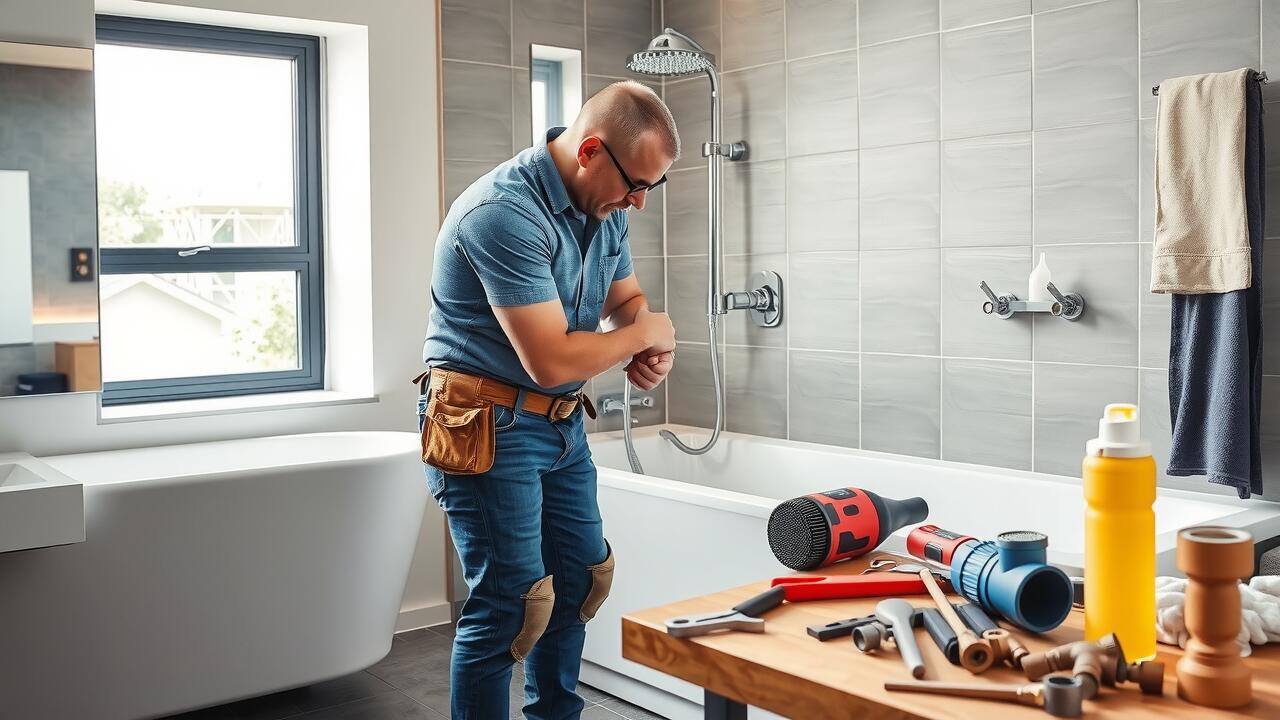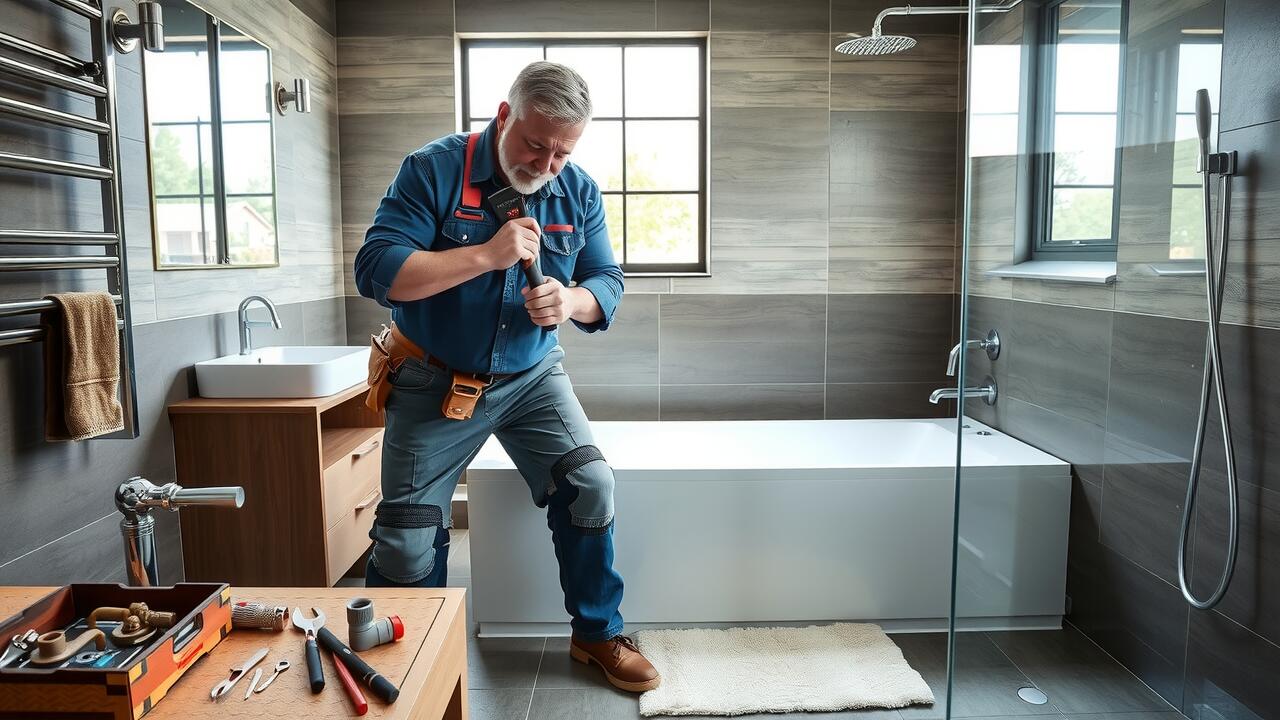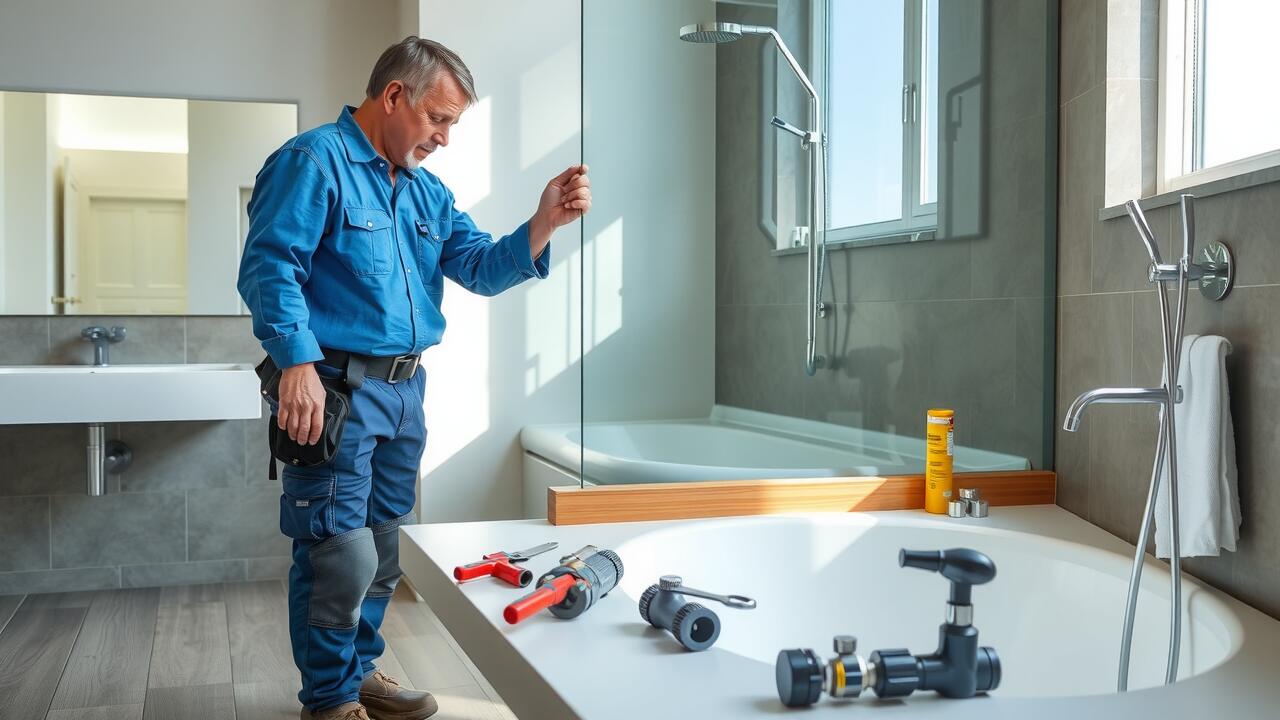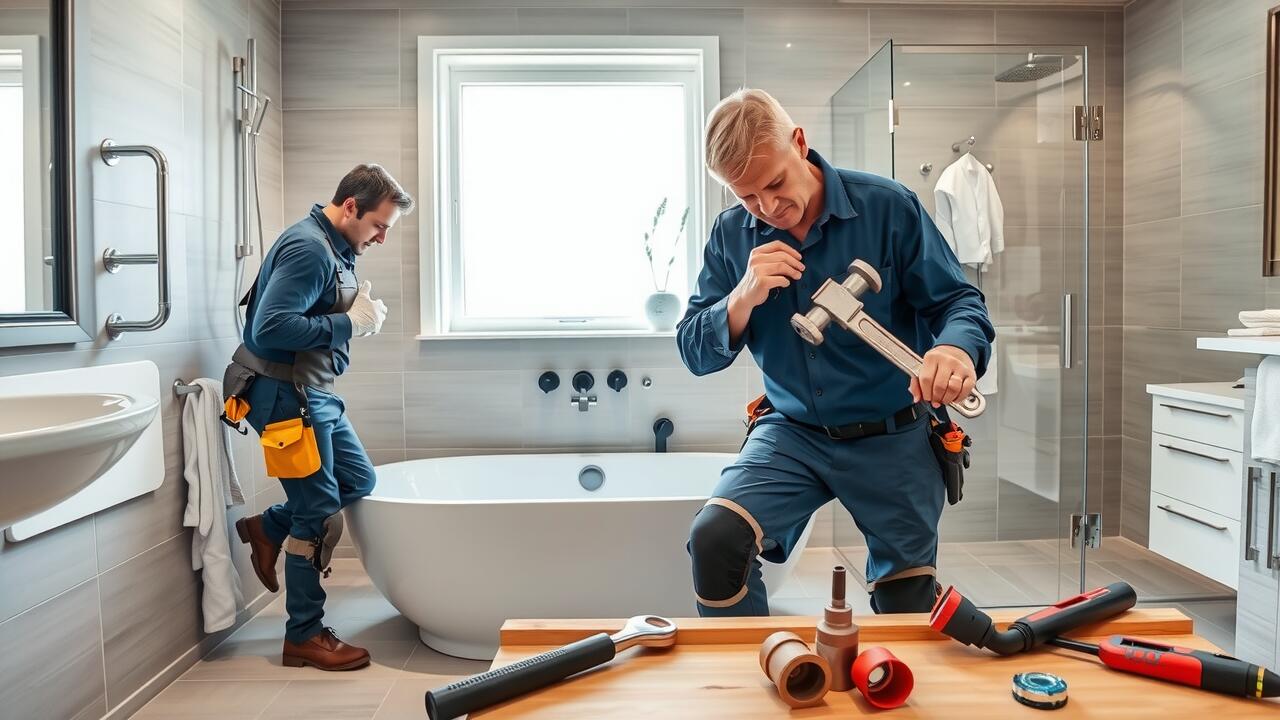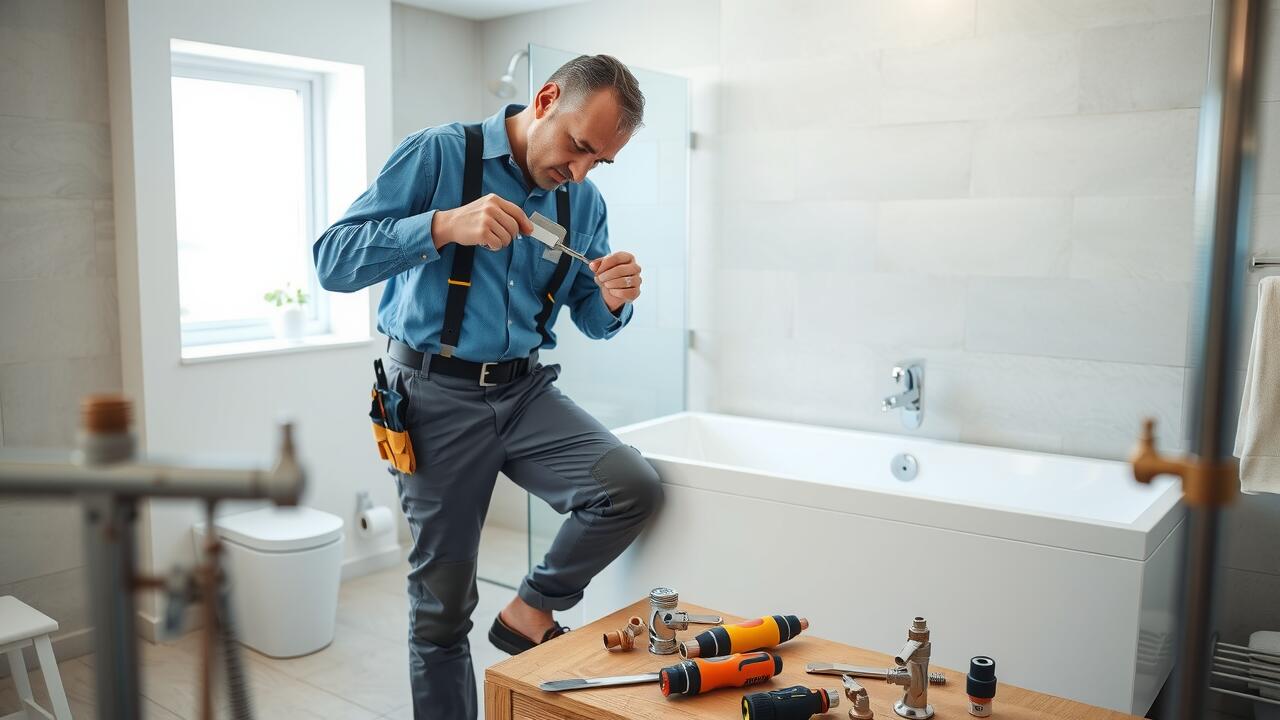
Permits and Regulations
When undertaking any home renovation project, it is essential to consider the required permits and regulations. Shower and bathtub installation in residential properties often necessitates obtaining permissions from local authorities to ensure compliance with building codes. These codes can vary significantly from one area to another, making it crucial for homeowners to check specific local regulations prior to commencing work. Ignoring these requirements can result in fines or the need to redo work that has been completed improperly.
Additionally, certain installations may require inspections at various stages of the project. This ensures that plumbing and electrical work meets safety standards and standards of performance. Homeowners should anticipate possible delays due to the inspection process and factor these into their planning. Engaging a qualified contractor familiar with local regulations can ease the burden of navigating these requirements, streamlining the installation of showers and bathtubs.
Necessary Approvals for Installation
Before proceeding with shower and bathtub installation in your home, it is essential to ensure that you have obtained the necessary approvals from local authorities. These regulations often vary by jurisdiction, so it is wise to consult your local council to determine the specific requirements in your area. Common approvals required for such installations may include building permits and plumbing permits, depending on the scope of the project.
Failure to secure the appropriate permits can result in significant complications down the line. Inspections may be mandated after the install, and without the required documentation, you could face fines or be ordered to revert the changes made. Additionally, having the proper approvals can be beneficial should you decide to sell your property, as prospective buyers often request proof of compliant installations.
Timing and Scheduling
Timing plays a crucial role in the overall cost of shower and bathtub installation in any home. Homeowners often overlook how seasonal demand can influence prices. During peak renovation seasons, such as spring and summer, the demand for plumbing and installation services tends to rise, leading to increased costs. Scheduling your installation during the off-peak months may provide a cost-effective solution, as contractors often offer competitive rates to fill their schedules.
In addition to seasonal factors, timing also affects the availability of skilled tradespeople. Many contractors have varying workloads, depending on the time of year. If you can be flexible with your schedule, you may find it easier to secure an experienced installer at a better rate. It is wise to plan well in advance, taking into account holiday seasons when tradespeople may be unavailable or working at reduced capacity.
Seasonal Influences on Pricing
Seasonal factors can significantly affect the cost of shower and bathtub installation in various regions. Typically, demand peaks during the warmer months when homeowners are more inclined to undertake renovations. This heightened interest can result in higher prices as contractors and suppliers adjust for the increased workload. As a consequence, booking installations during the summer may lead to premium rates compared to off-peak seasons.
Conversely, winter months often see a decrease in demand, which can sometimes translate into cost savings for homeowners. Contractors may offer discounts or lower rates to secure projects during slower periods. However, it's crucial to consider potential challenges, such as delays caused by adverse weather conditions, which could extend the timeline for installation. Planning around these seasonal influences can help homeowners strategically budget for their shower and bathtub projects.
Removal of Existing Fixtures
Removing existing fixtures is a crucial step in the process of updating your bathroom. This phase involves careful demolition of the current bathtub or shower. A professional approach is essential to prevent damage to surrounding tiles or plumbing. Costs can vary depending on the complexity of the removal, as well as any repairs needed after the fixtures are taken out.
Shower and bathtub installation in an existing space requires proper assessment of the prior setup. Unexpected complications may arise during the removal, such as outdated plumbing or structural issues. Homeowners should consider budgeting not only for the installation of the new fixtures but also for any necessary adjustments after the old ones are removed.
Cost Implications of Demolition
Demolition of existing fixtures prior to shower and bathtub installation in a bathroom can significantly affect overall project costs. Homeowners should anticipate expenses related to the removal of old bathtubs or showers, which may include labour fees and disposal charges. If plumbing or electrical work is required to facilitate the new installation, this can also add to the overall budget. Engaging professionals for the demolition process might be advisable to mitigate potential risks and ensure safety.
Additionally, unexpected challenges during demolition can further elevate costs. Issues such as water damage or mould may be uncovered, necessitating additional repairs before the new installation can proceed. Any structural alterations or modifications will contribute to the total expenditure, making it essential for homeowners to account for these potential factors in their financial planning. Being prepared for these scenarios helps in ensuring a smoother transition to the new shower and bathtub installation in the space.
FAQS
What factors influence the cost of installing a bathtub and shower?
The cost of installation can be influenced by several factors including the type of bathtub and shower selected, the complexity of the plumbing and electrical work required, any necessary permits and regulations, and the removal of existing fixtures.
Are permits always required for bathtub and shower installation?
Not always, but permits may be required depending on local regulations and the scope of the installation. It’s advisable to check with your local building authority to determine if you need any approvals before starting the project.
How can the timing of installation affect the overall cost?
Seasonal influences can affect pricing, as demand for contractors may fluctuate throughout the year. For example, prices may be higher in peak renovation seasons compared to quieter months. Scheduling during off-peak times could potentially save you money.
What should I expect in terms of cost for the removal of existing fixtures?
The cost implications for the demolition of existing fixtures can vary widely based on the condition and type of the fixtures being removed. Generally, you should anticipate additional labour and disposal fees, which can add to the overall installation cost.
How can I get an accurate estimate for my bathtub and shower installation?
To get an accurate estimate, it’s best to consult with a professional plumber or contractor who can assess your specific needs, evaluate any existing fixtures, and provide a detailed quote that includes all materials, labour, and other associated costs.
